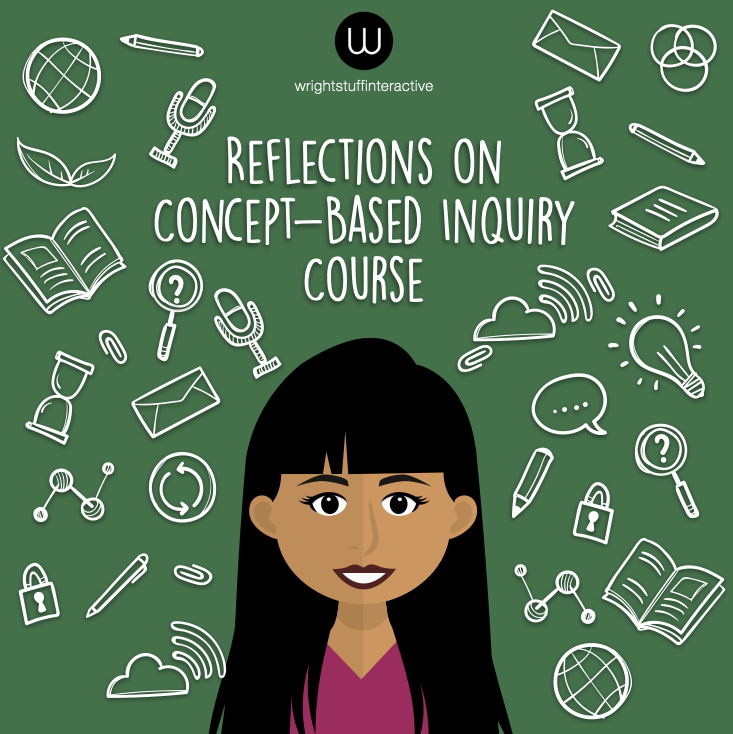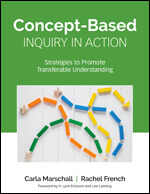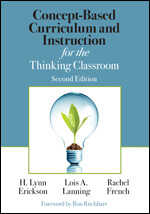
At the end of this calendar year, a group of teachers from ISH participated in an amazing 6-week course with Rachel French and Carla Marshall on Concept-Based Inquiry in Action. The structure of the course followed their book of the same name, supported by recorded videos of the authors and others of classroom practice from around the world.
Seeing how students of different ages responded to the strategies in real classrooms together with the personal coaching call at the end of the course with Rachel was what set this course apart from any other professional development I have ever attended. It was challenging while also being intensely practical.
If you are excited about enhancing your understanding of Concept-Based Curriculum and Instruction, and want to develop a bank of teaching strategies to promote understanding then this online workshop is for you! Over a six-week period, you will have the opportunity to journey through five unique online modules that will provide you with a strong foundational understanding of Concept-Based Unit Design.
Course description from Professional Learning Internation website
Now, I am certainly not an expert… in fact the more I read and learn, the more I feel that I have yet to learn. These, however, are the major points I will take away, together with all the amazing lesson strategies, and apply to planning in the future:
The Concept-Based Inquiry cycle is not a linear process, there are no steps, but specific intentions for the lesson that build upon each other. The goal is understanding expressed as generalisations. Generalisations are statements of understanding, usually six to nine per unit, with two or more concepts in relationship with each other. These concepts can be micro discipline-specific concepts or broader universal macro concepts.
This book is actually the ‘lesson based’ companion to Concept-Based Curriculum and Instruction for the Thinking Classroom by Lynn Erickson, Lois A. Lanning and Rachel French. Commonly known as “The Blue Book”, this is where you learn about the larger unit planning that builds the foundation for the strategies offered in “The Green Book”.
I also had a revelation during the course that was an absolute kick in the guts (not over exaggerating). I consider myself an inquiry-based teacher, or at the very least, passionately pursuant of the title. However, this course made me realise that the units I have been writing up until now have really only been addressing half of the inquiry cycle. In my units, there was very little time intentionally set aside for Organising, and hardly any time was intentionally given to Generalising or Transfering. “Intentionally” is the keyword in these statements – students may or may not have organised, generalised, and transferred their understanding of the unit but it was never the specific intention of the lesson… I never trusted my students enough to give them this responsibility wholeheartedly. We would organise as a class, then I would pull everything together and give them the generalisation, and finally, students might transfer their understanding to similar or dissimilar contexts but this was one of those “out of the blue” moments that usually came from particularly capable and self-motivated students. This course has taught me that these moments can be intentionally planned for and all students should be given the opportunity, with appropriate scaffolding, to do this higher-level thinking… This is the new challenge for me… how can I plan and deliver learning experiences that directly contribute to students constructing and articulating understanding?
I’m going back to read more of the book…





